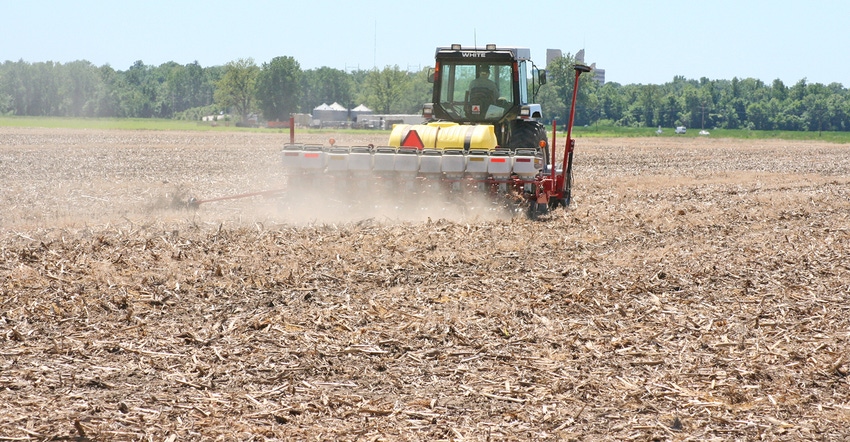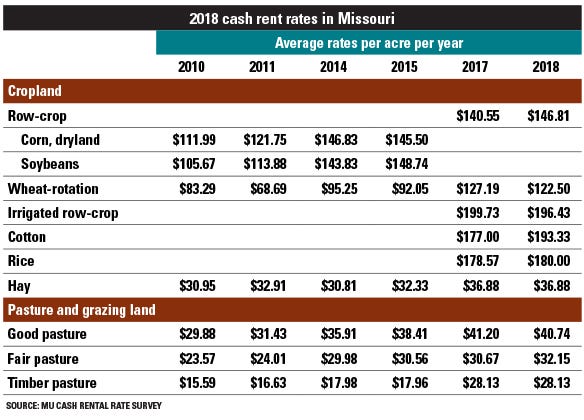
It is the time of year when many farmers and ranchers are renegotiating leases. However, knowing just how much land or pasture is fetching for rent is often difficult as many landlords or tenants are not willing to share those figures.
Still, the University of Missouri has a survey that looks at rental rates. This summer 280 landowners and farmers responded to an online survey about cash rental rates. The university publishes it findings in its 2018 Cash Rental Rates in Missouri guide.
Overall, the cost of renting land for crops increased from 2017, while pasture rental remained relatively the same.
Rent for row crops
For the last two years, the survey looked at crop acres for corn and soybeans as one category. In previous years the two crops were separated. Overall the combined cropland rents increased from $140 per acre to near $147 per acre. According to the report, row-crop ground for corn and soybeans has been above $143 since 2014.
Cotton and rice acres also saw jumps in rental rates. Cotton had the largest increase at $16 per acre in just one year.
Crops seeing a decline in rental rates include irrigated acres and wheat. However, wheat has seen a big increase in the past three years from $92 per acre to over $122 per acre.

Higher-yielding land demanded a higher rental rate than lower-yielding land, according to the results. The survey found that land expected to yield 140 bushels per acre would rent for $135 per acre while land expected to yield 150 bushels per acre would rent for $144 per acre, an increase of $9-per-10-bushel-yield increase. For soybeans, each 10-bushel increase in soybean yield would be expected to raise rent about $30 per acre, from $125 per acre for an expected 40-bushel yield to $155 for a 50-bushel yield.
Price of pasture
The survey split pasture and grazing land into three categories — good, fair and timber.
Good pasture rent dipped slightly to $40.74 per acre. Still, that is well above the 2010 rate of $29.88 per acre.
Pasture rated fair by landowners or farmers increased to $32.15 per acre, the largest amount paid for this category in eight years.
Areas among the trees saw rent stay the same as last year at $28.13 per acre.
Things to consider
Gene Schmitz, University of Missouri livestock specialist, says farmers and landlords should talk over requirements of the lease before finalizing the rent amount.
"Pasture leases can be extremely variable, depending on what different parties bring to the table," he says. "If the landlord basically provides a place for animals to roam around during the summer, rental rate should be relatively low. The more the landlord provides, such as fertilizer, working facilities, high-quality pasture, high-quality fencing, multiple water sources, management or labor assistance, the higher the rental rate should be."
He notes the same type of discussion should take place for cropland.
Once the rental rate is agreed on, Schmitz says to get it in writing. He says websites such as aglease101.org, developed by the North Central Farm Management Extension Committee, can help provide information on lease agreements as well as sample lease forms.
Go online to check the 2018 Cash Rental Rates in Missouri.
About the Author(s)
You May Also Like






